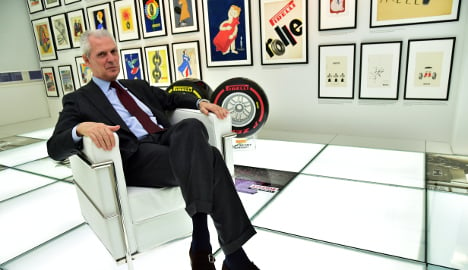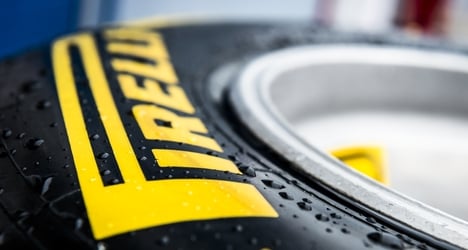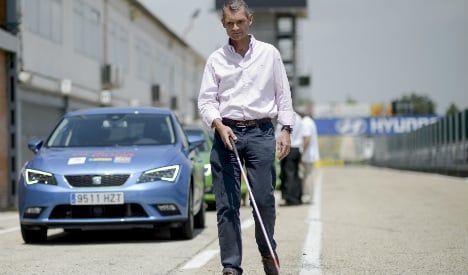In an interview with AFP at the company's Milan headquarters, Marco Tronchetti had a reassuring message for fans of the annual collection of pictures of scantily-clad supermodels shot by leading photographers.
"It is the one thing Chinese, Italians and Russians can all agree on – we'll never give it up," Tronchetti said on Wednesday.
Launched in 1964 as an annual giveaway for garages that sold Pirelli tyres, the main calender has evolved from the cheesy to the arty end of the erotica spectrum.
It's glossy celebration of feminine curves has become integral to a brand that, thanks also to its Formula One links, is sufficiently strong for it be described by one analyst as the Prada of the world of burning rubber.
According to Tronchetti however, ChemChina is acquiring a lot more than a prestigious marque with the €7.4 billion deal paving the way for the state-owned Chinese giant to take control of one of Italy's industrial icons.
The accord will see Pirelli delisted from the Milan bourse and split into two units, one producing high-end tyres, the other industrial ones.
According to Tronchetti, the plan removes the risk of Pirelli, which will continue to have Italian and Russian shareholders, becoming a target for hostile takeover attempts.
"ChemChina are helping us stabilize the company's shareholder structure for the forseeable future, ensuring we remain actors in the market, rather than becoming pawns," he said.
Motorsport training
If all goes well, the new unit producing high-tech and racing tyres will be floated while the mass market production will be merged with Chinese subsidiary Aeolus.
The upmarket branch of the business will continue to be based in and run from Italy, Tronchetti stressed, while the deal opens up a Chinese market into which Pirelli has hitherto made little inroad.
As such, it is exactly the kind of strategic alliance Pirelli has been seeking for several years.
As well as pledging to continue production of both Pirelli calanders (a Chinese version was launched five years ago in Shanghai), Tronchetti said there was no question of the company ending its "crucial" involvement in motorsport.
"It is where we create our technology. It is kind of our training room for the future of Pirelli," he said. "Not only will we be continuing, we will be making it even more of a priority."
ChemChina's principal interest lies in the access it gains to Pirelli's technology, notably its capacity to produce tyres on which components can be replaced, extending their lives and making them more economical and environmentally friendly.
The deal has been attacked by labour unions as a sign of Italy ceding control of a strategic industrial asset but misgivings have otherwise been muted, with most politicians apparently accepting Prime Minister Matteo Renzi's emphasis on the need for the economy to become more open to inward investment.
READ MORE: China's Pirelli deal sparks bitterness in Italy
"Renzi is on the right path," Tronchetti said. "This is the future. There are Italian, Russian, Chinese shareholders, the company will return to the stock exchange but we have protected Italian technology.
"Italy has made some very bad industrial choices in the last few decades, protecting only a few state companies while allowing them to become marginalized from world markets.
"Those who take an interest in the future of the country have all welcomed this deal."
The alternative, the 67-year-old says, would have been a merger of equals with a rival tyremaker that would have been doomed to failure.
With ChemChina, "there is no conflict. It seems balanced to me."
Tronchetti, who has been guaranteed five more years at the wheel of the company, recalled that he had taken over as CEO in 1992 in the aftermath of an aborted attempt to forge an alliance with the German group Continental.
"At the time the company was under serious threat (of losing its independence). Now my objective is to give Pirelli a future that is, as far as possible, guaranteed so that, tomorrow, someone cannot come along and buy it with the intention of dismantling the company and destroying the work that has been done."




 Please whitelist us to continue reading.
Please whitelist us to continue reading.
Member comments